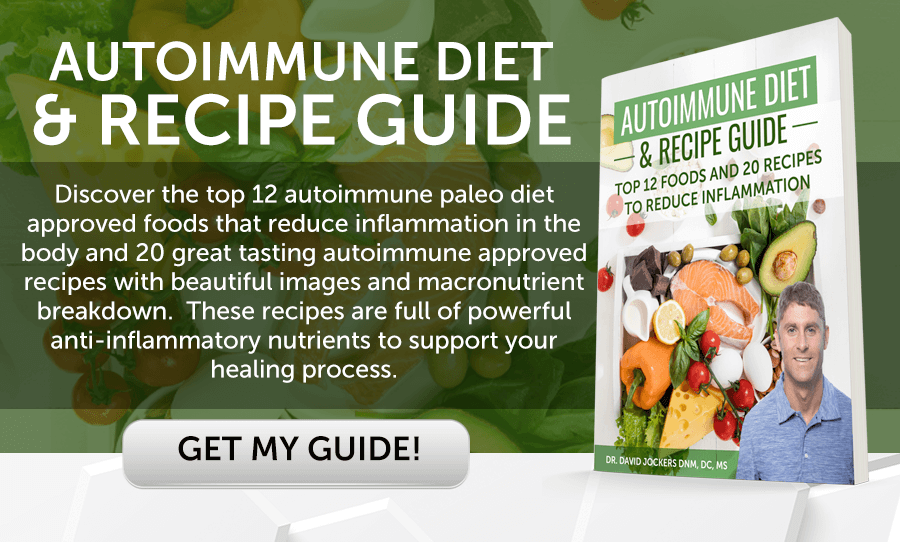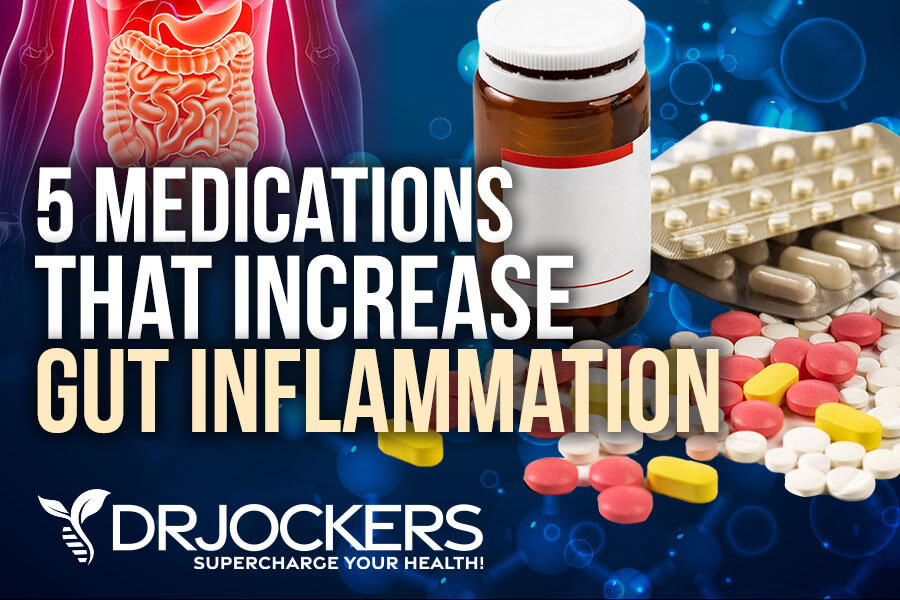 5 Medications That Increase Gut Inflammation
5 Medications That Increase Gut Inflammation
Are you taking any medications? Most people will take medications throughout their lives for various health issues. Many will end up on several long-term medications to manage chronic health problems. Though medication can be beneficial and even save lives, long-term use of medication can seriously impact your body. It can increase gut inflammation and lead to leaky gut syndrome, which can cause an array of health challenges.
Fortunately, most long-term medication use can be avoided through dietary and lifestyle changes and supplementation. You can also improve your gut inflammation from medication use through some simple natural strategies.
In this article, I will discuss why medications can be problematic. You will learn about the importance of a healthy gut lining. You will understand the leaky gut, inflammation, and autoimmunity connection. I will share the 5 main medications that can increase gut inflammation. Finally, I will share my best tips to improve gut inflammation naturally.
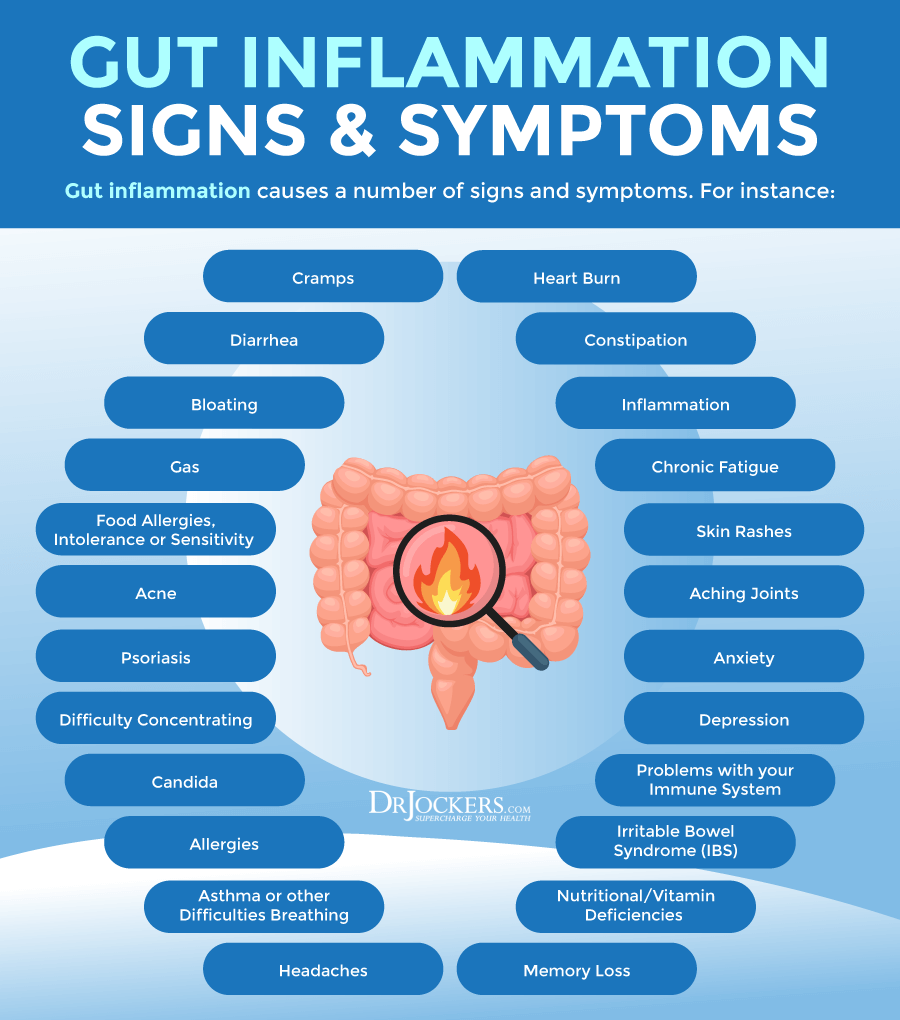
Why Medications Can Be Problematic
Medications can save lives in some cases. However, unfortunately, medications in many cases are overprescribed and overused.
In my professional experience and opinion, in about 80 percent of cases when medications are prescribed, simple lifestyle changes could address the problem. While medications can be beneficial and even lifesaving at times, in most cases, they should only be used short-term to aid recovery.
When medications are used for more than a few weeks at a time, they can significantly impact your body’s natural physiological mechanisms and can cause some serious problems. There are some serious issues with medications, especially with prolonged use and overdue prescription medications.

Never Address the Root Cause
Medications rarely ever address the root cause of the problem. Modern medicine focuses on your symptoms one body part at a time. They don’t dig deeper to find and address the root cause, and they rarely look at your body as a whole on a holistic level.
Many meds suppress your symptoms, essentially putting a bandaid on the problem. Not addressing the root cause can lead to future problems, including inflammation, more symptoms, chronic health issues, and serious health consequences.
Are Often Not Effective
Medications are not always effective. Certainly, there are some wonderful medications that are effective and can aid your recovery. But this is not true in all cases. Medications are often not effective.
If they are, they are often only there to help short term but not effective in the long run. In other cases, they are not more effective than natural options, such as dietary adjustments, lifestyle changes, and supplementation.
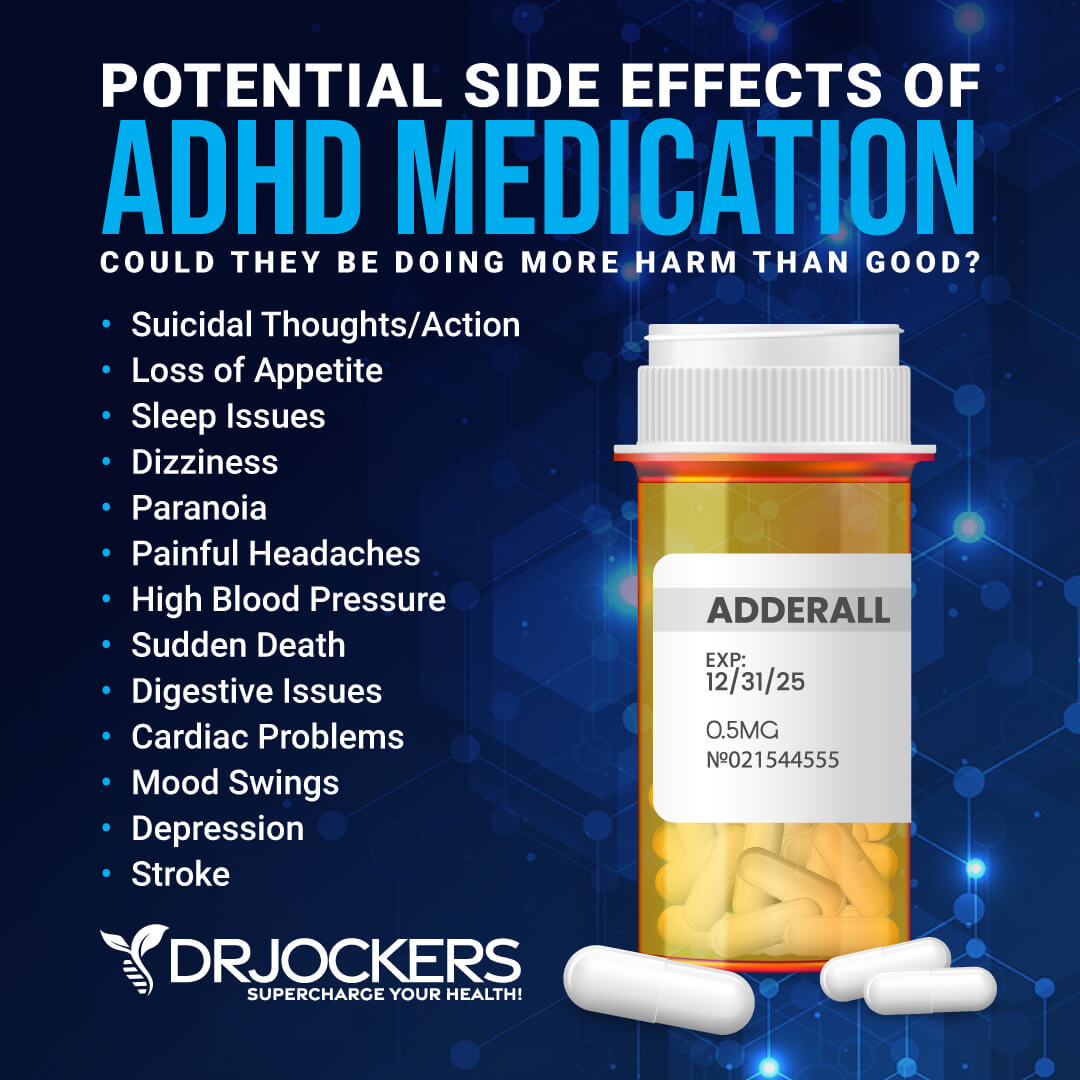
Are Used Too Long
Medications are often used for too long. In my experience, most medications shouldn’t be used for more than a few weeks at a time to help recovery. This can also allow some time to start with dietary and lifestyle changes or necessary supplementation.
Yet, people often take medications for months or years or even a lifestyle. Long-term medication use can be hard on the body leading to various health issues, including gut inflammation, which I will discuss in this article.
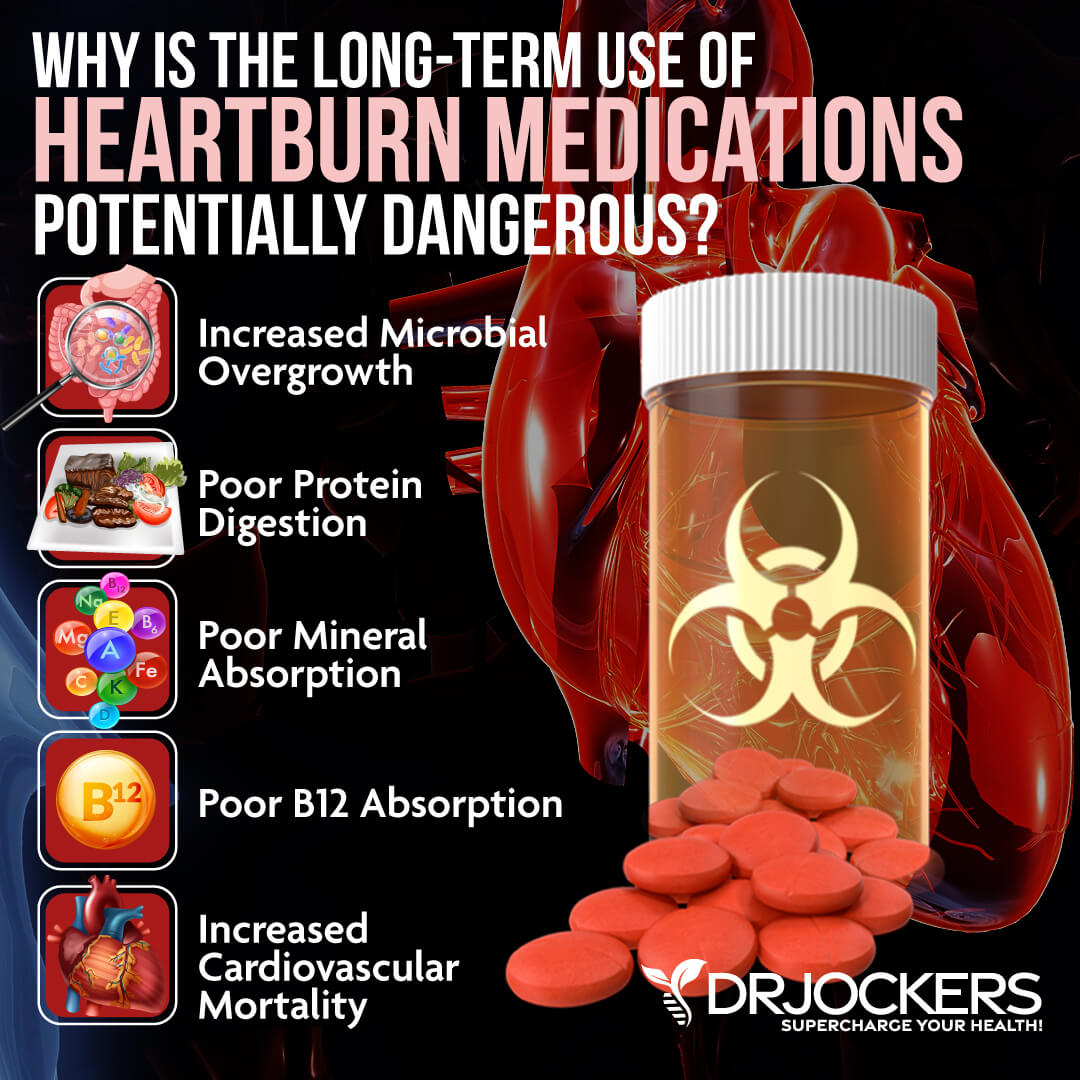
Have Problematic Side Effects
One of the biggest issues with medications is risks and side effects. Many medications come with unpleasant and sometimes severe side effects. Instead of lowering the dose or quitting the medication and looking for natural and safer options, doctors usually just prescribe another medication to treat the side effects.
Now when new drugs come with side effects, you guessed it, you may get medication for those side effects too. Soon enough, you can end up with a drawer full of medications for long-term use. If one medication is hard on your body, imagine taking 4 to 5 of them.
Are Often Combined with Other Meds
Many people get prescribed several medications either to address one or several health issues or to address the side effects of medication. The problem here is that we don’t know the safety of these polypharmacy combinations. Medications can negatively interact with each other.
They can lead to adverse effects and side effects. Some medications may even counteract the benefits of one another. And again, using more medication is hard on your gut lining, gut microbiome, and your entire body.
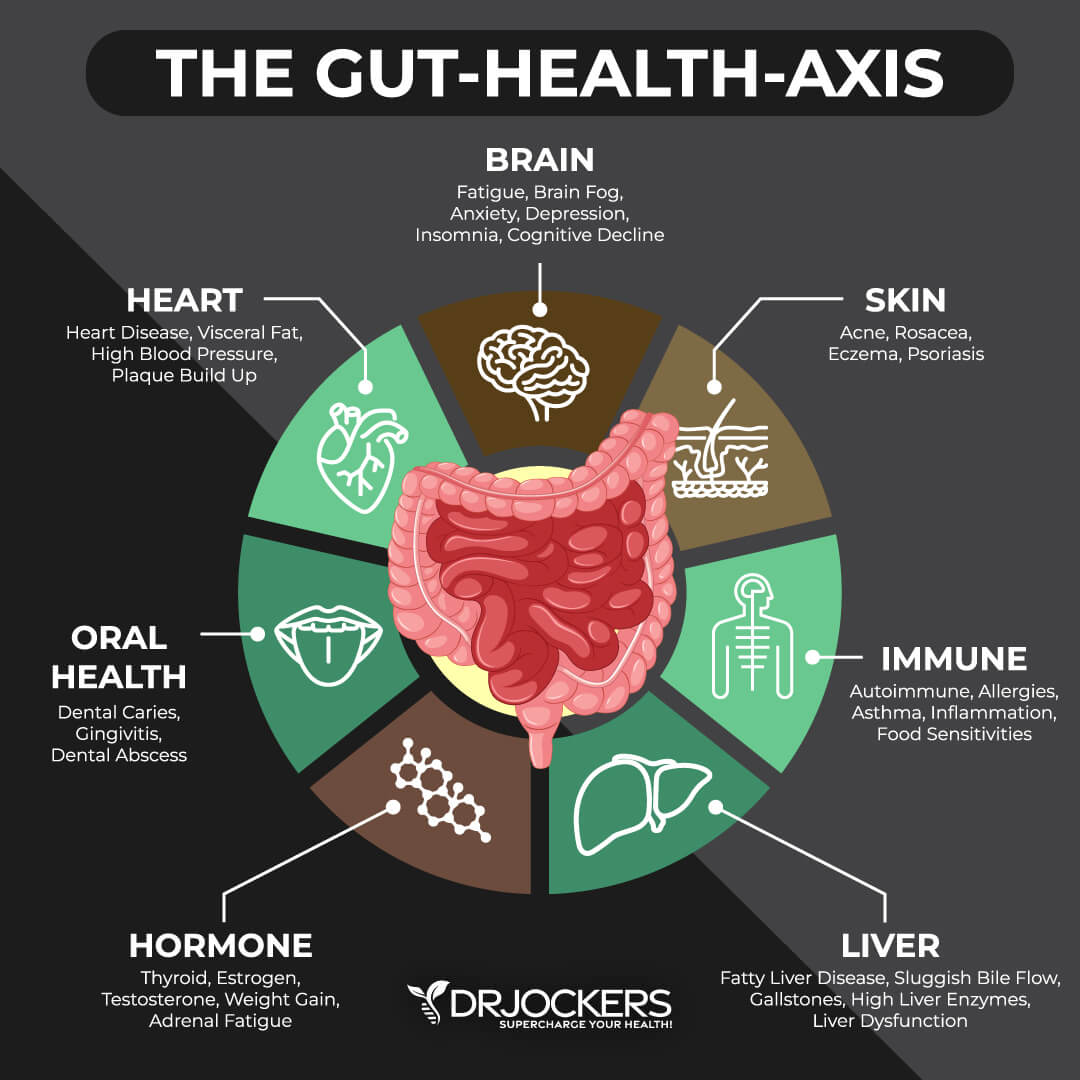
The Importance of a Healthy Gut Lining
Having a healthy gut lining is critical for your overall health. Your gut lining serves as a protective barrier between your gastrointestinal system and the rest of your body. Your gut lining allows nutrients to be absorbed into your bloodstream.
The are tiny holes in your gut lining that allow these nutrients to pass through. However, these little gaps stop and keep out toxins, pathogens, and other harmful substances from getting into your bloodstream.
Your gut lining also supports a healthy and balanced microbiome. It supports your digestion. It is also critical for your immune system. Due to the connection between your gut and brain, called the gut-brain axis, your gut also plays a role in your brain health, cognitive function, mood, and mental health.
However, if your gut lining becomes damaged, it results in a damaged or leaky gut. Leaky gut syndrome can lead to a long list of symptoms and health risks. I will discuss this in the next section.
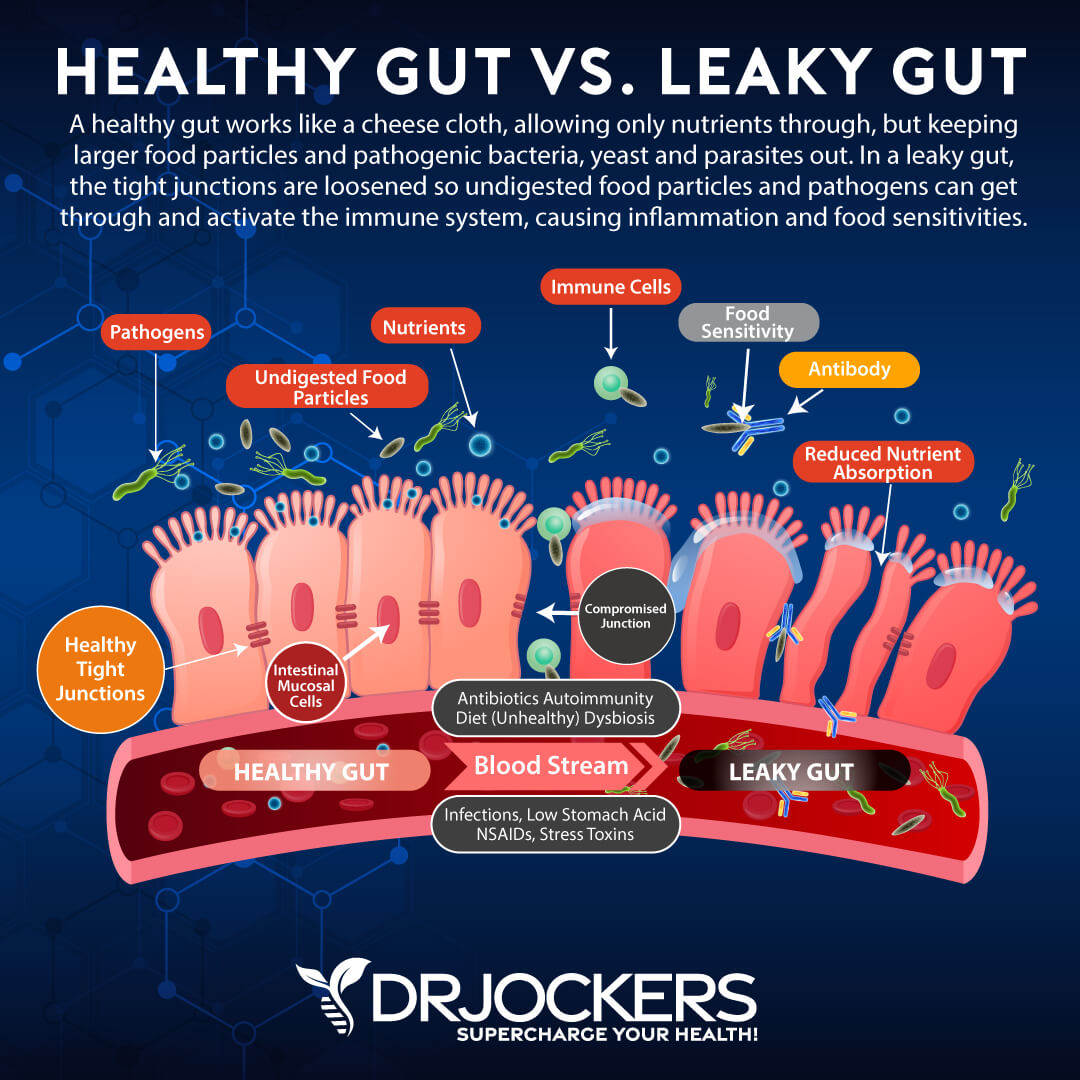
The Leaky Gut, Inflammation and Autoimmunity Connection
If your gut lining becomes damaged due to high environmental toxin overload, a poor diet, poor lifestyle choices, long-term medication use, and chronic stress, the tiny holes in your gut lining can become bigger. As a result, not only nutrients, but toxins, bacteria, other pathogens, undigested food particles, and other harmful substances can get into your bloodstream.
This can trigger inflammation and increase the risk of autoimmune diseases, irritable bowel syndrome (IBS), insulin resistance, diabetes, heart health issues, chronic health issues, and other health problems.
For example, a 2022 review published in Frontiers in Immunology has found that there is a link between leaky gut, gut microbiome imbalance, and the risk of autoimmune diseases (1). According to a 2019 study published in Open Heart, there is a connection between your gut and heart, called the heart-gut axis (2).
According to a 2021 review published in Endocrine Connections, there may be a link between gut microbiome health, leaky gut syndrome, and diabetes, and addressing these gut issues may help (3). Thus, it may not be surprising if leaky gut can affect your cardiovascular health. Maintaining a healthy gut lining through a nutrient-dense diet, probiotics, and nutrients is critical for your health and well-being.
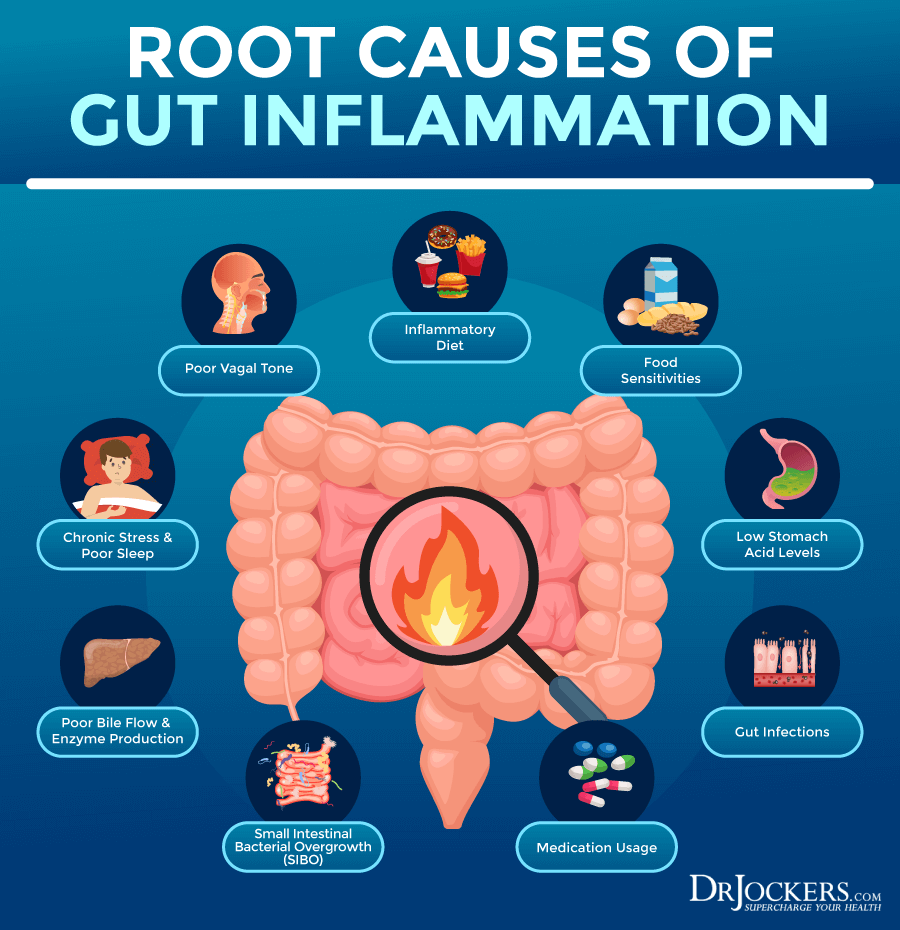
5 Medications That Damage the Gut Lining
While there are many medications that can negatively impact your gut lining, especially when used long-term, there are 5 medications that I want to talk about in this article.
These are the top medications you need to pay attention to and avoid, if possible, to protect your gut and overall health. Here are the 5 medications that can damage your gut lining:

NSAIDs
Non-steroidal anti-inflammatory drugs (NSAIDs) are medications commonly used to reduce pain, inflammation, and even fever. Many NSAIDs are over-the-counter medications and are widely overused. NSAIDs include ibuprofen, naproxen, and aspirin.
NSAIDs can cause damage to your stomach. According to a 2018 study published in ACS Infectious Diseases, NSAIDs may damage the intestinal lining of your gut which can result in leaky gut syndrome (4). They may also lower stomach acid production and increase the risk of gastric or intestinal ulcers.
According to a 2000 article published in Best Practice & Research Clinical Gastroenterology, they may lead to gastric ulcers in various ways, including irritating the epithelium topically, negatively affecting the barrier function of the mucosa, reducing gastric prostaglandin synthesis, decreasing gastric mucosal blood flow, and disrupting with the repair of superficial injury (5).
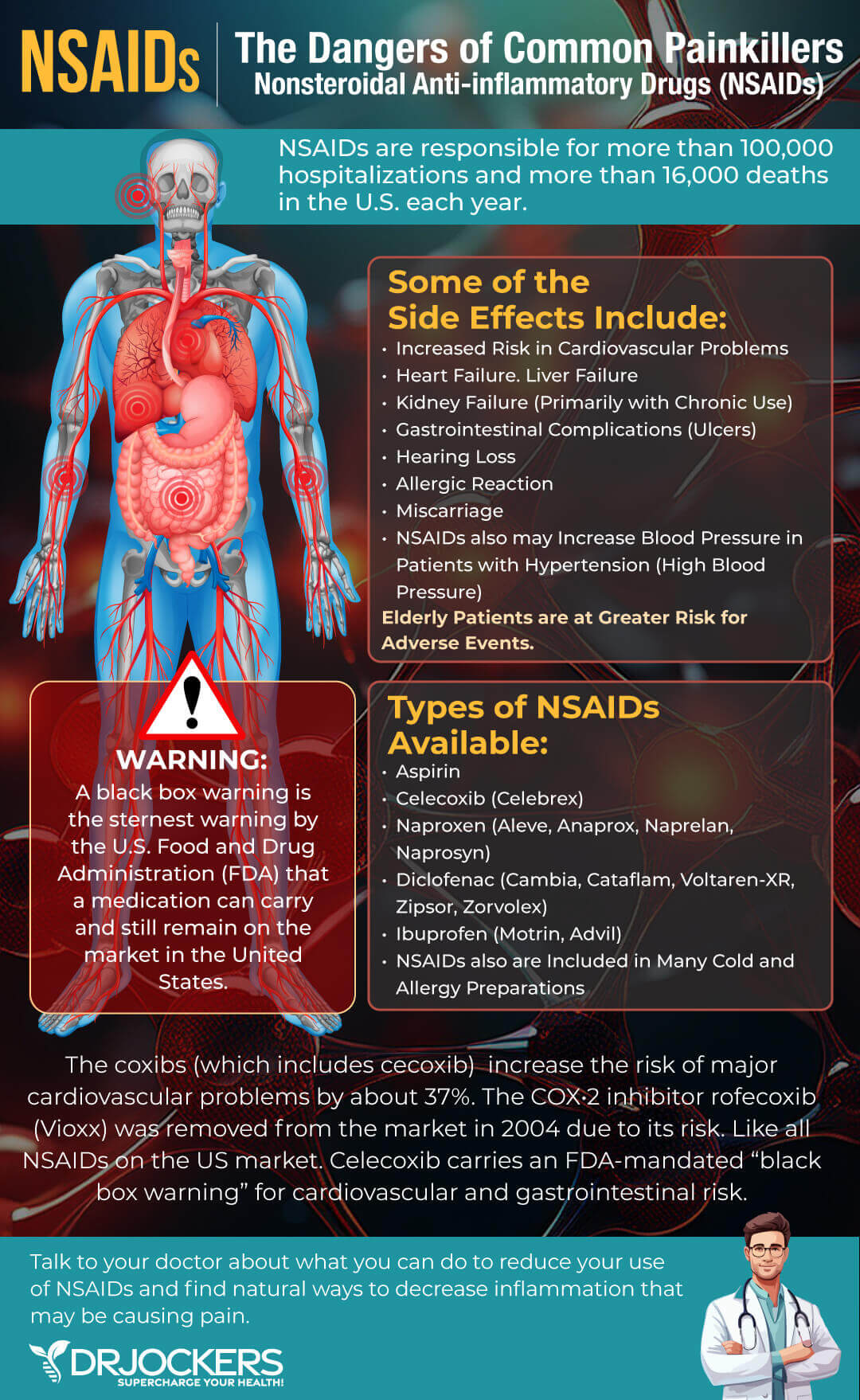
Antibiotics
Antibiotics are medications that help to tackle bacterial infections. They can be helpful and in some cases lifesaving. However, antibiotics are overprescribed. They are commonly prescribed for illnesses where natural strategies could help the issues. They are also prescribed for non-bacterial infections on a ‘just in case’ basis.
The problem with antibiotics is that they not only kill the bad bacteria in your body, but they can also kill the good guys. This can lead to gut microbiome imbalance which may result in leaky gut syndrome, gut inflammation, and related issues. According to a 2023 study published in the International Journal of Molecular Sciences, antibiotic use-related gut dysbiosis can affect the gut-brain axis and cognitive health (6).
The overuse of antibiotics may also lead to antibiotic resistance which means that your body will be resistant to antibiotics, and they won’t work even in serious cases when they are needed to save your life. According to 2023 research published in Cureus, antibiotic resistance can turn into a serious issue in disease management (7).

Birth Control
Birth control pills, also known as “the pill” or oral contraceptives, are medications prescribed to prevent unwanted pregnancies. They are also commonly prescribed for hormonal issues, including severe PMS, heavy periods, and PCOS.
Birth control pills can disrupt your liver function. They may create gut microbiome imbalance and increase gut inflammation.
2021 research published in Environmental Microbiology has found that birth control pills may reduce the diversity and change the composition of the gut microbiome (8). A 2016 review published in Drug Safety has found that birth control pills and hormonal therapy for menopause may also increase the risk of inflammatory bowel disease (9).
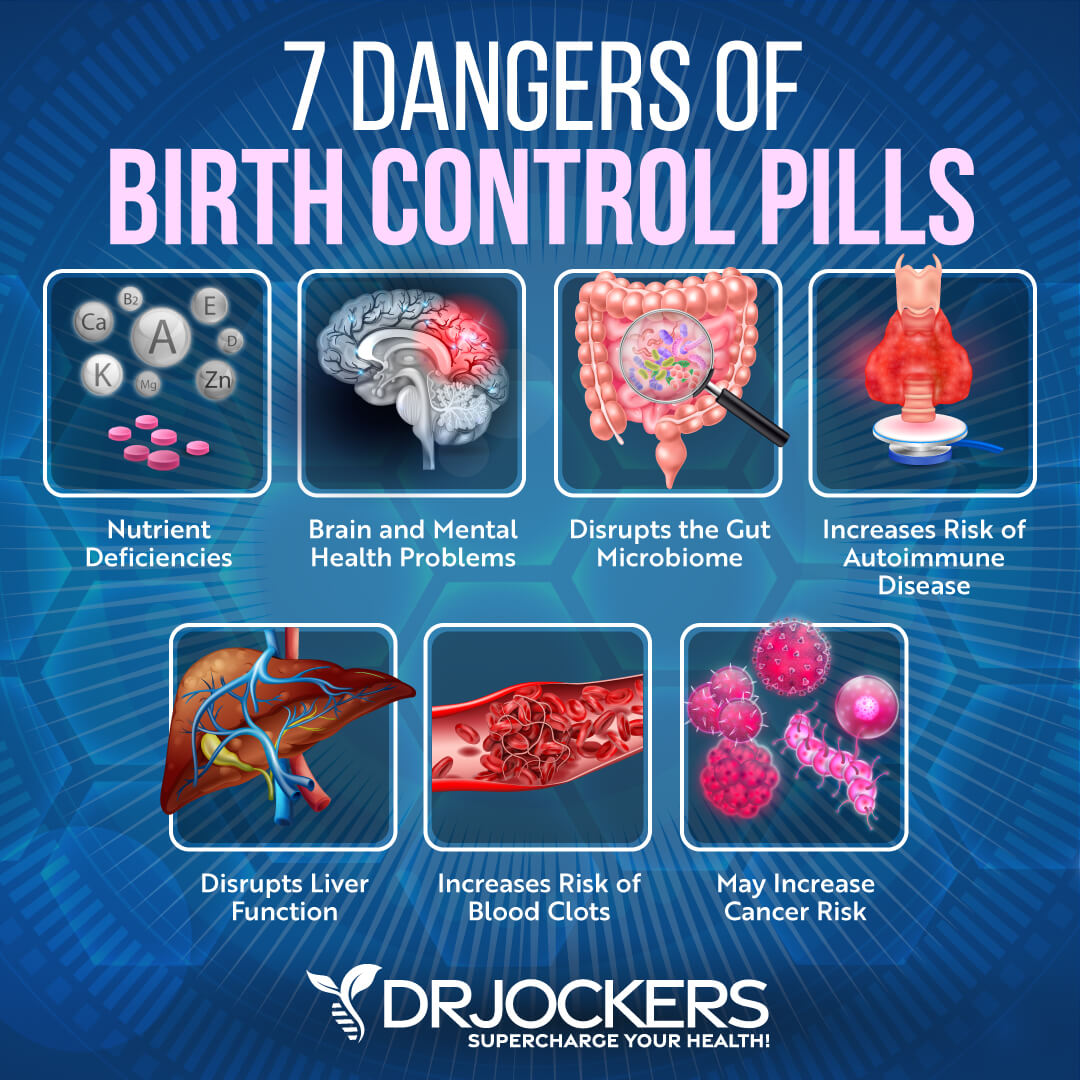
Acid-Blocking Medications
Acid-blocking or heartburn medications, such as proton pump inhibitors (PPIs), are designed to block stomach acid production. They are commonly prescribed for acid reflux, GERD, and similar issues. Acid-blocking medication can reduce protein, mineral, and vitamin B12 absorption.
They can also increase bad bacterial overgrowth in the gut. According to 2016 research published in Gut Microbes, just like antibiotics, antidepressants, statins, and other medications, PPIs can impact gut microbiome balance (10).
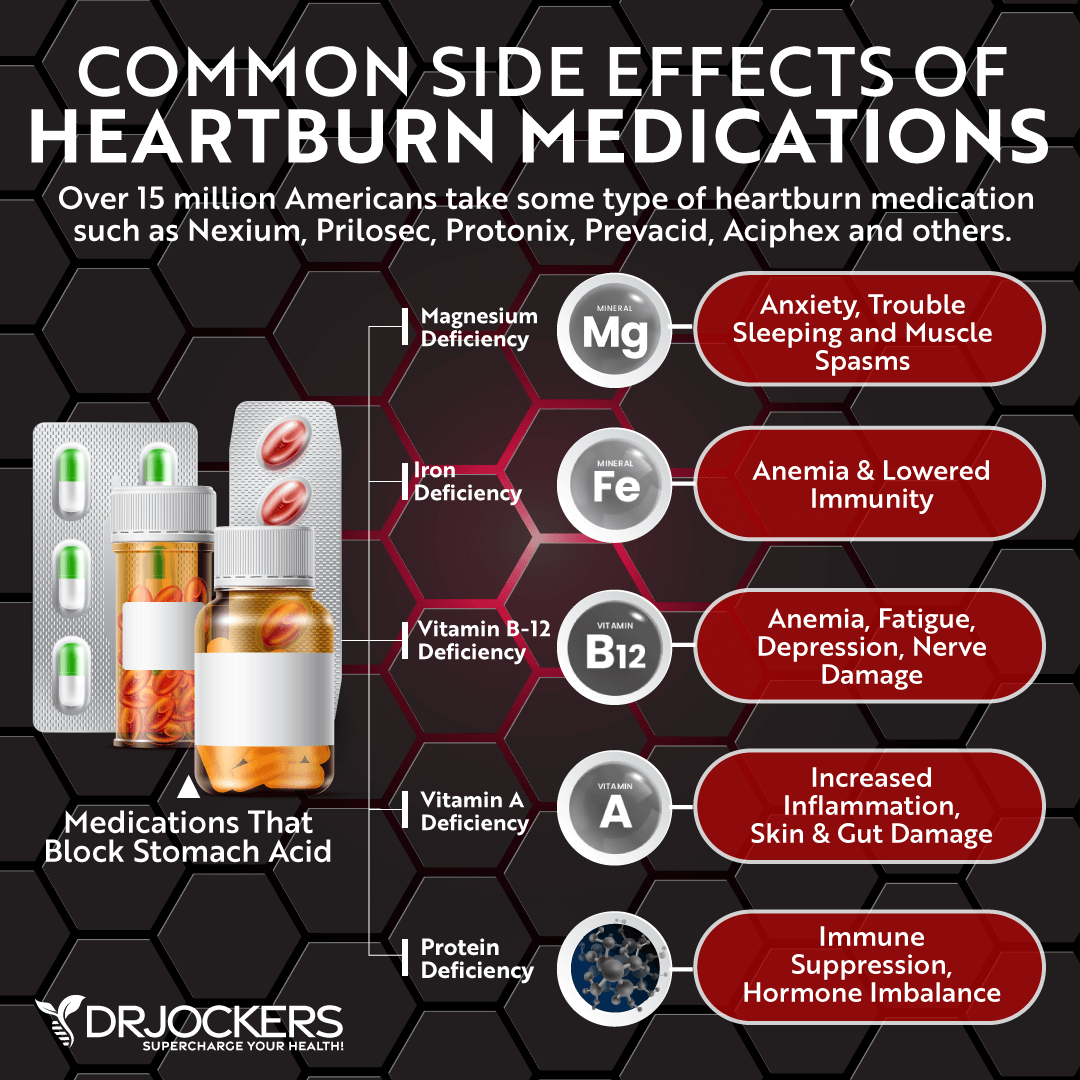
Steroids
Steroids are medications that help to suppress immune function. They can be used for asthma, eczema, allergic reactions, and very commonly, for autoimmune conditions. Steroids can be used short-term but are often used long-term or for life for autoimmunity.
Steroids may increase gut inflammation and gut microbiome imbalance. According to a 2018 article published in the Journal of Neuroendocrinology, steroids can impact the gut-brain axis (11). According to a 2022 study published in JGH Open, chronic steroid use for irritable bowel disease can increase the risk of infections and other health issues (12).
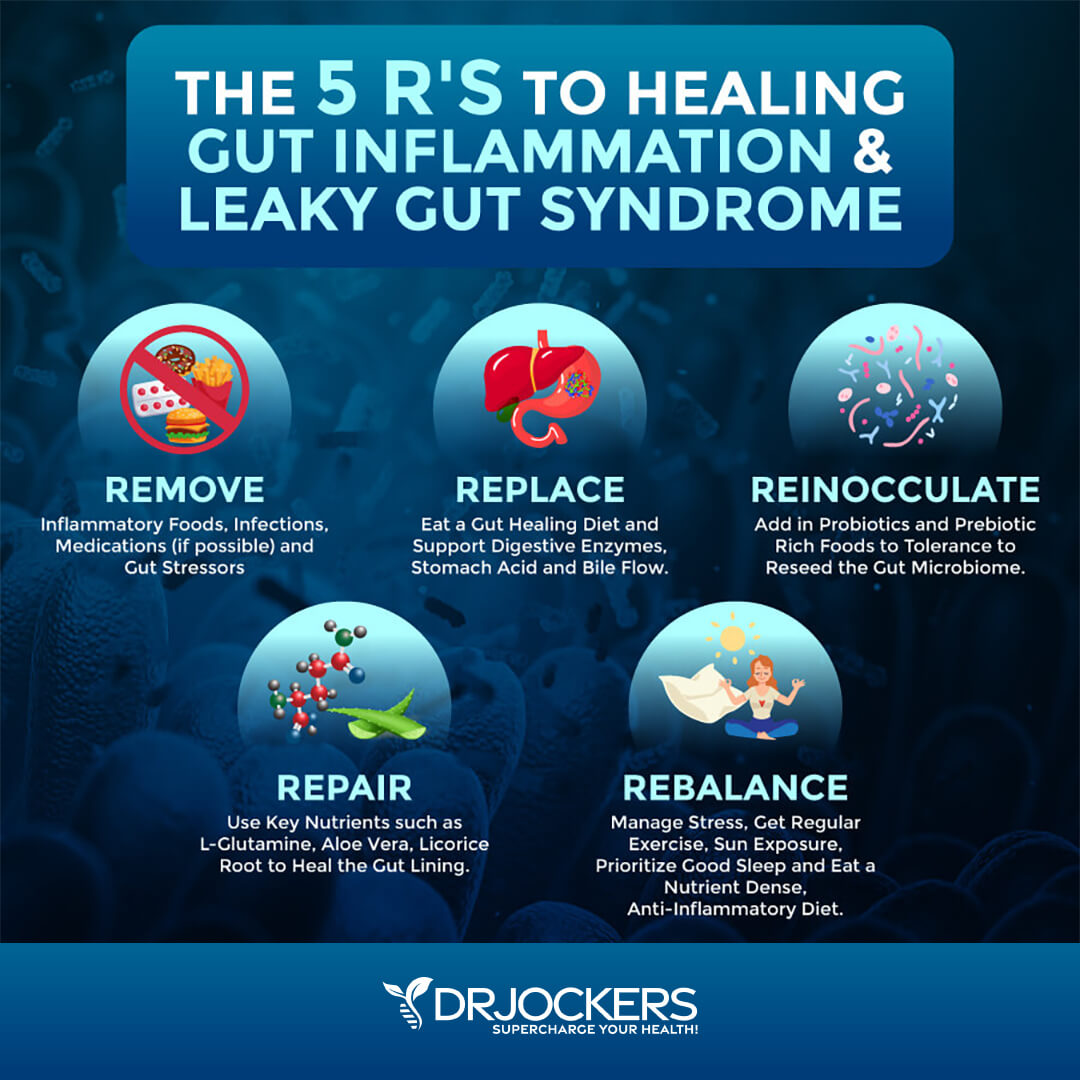
How to Heal Leaky Gut
Fortunately, you can heal leaky gut and improve gut inflammation from medication use through a few simple natural steps. Here is what I recommend.
Remove
Remove all inflammatory foods, including refined sugar, refined oil, artificial ingredients, additives, food allergens, food sensitivities, junk food, and overly processed foods. Remove any infections. I recommend getting gut health testing done to identify any underlying gut infections or other chronic infections and address them with appropriate herbs, supplements, food, and lifestyle changes.
Remove any medications, if possible, that may disrupt your gut microbiome. These medications may include related issues include NSAIDs, antibiotics, proton pump inhibitors (PPI’s), selective serotonin reuptake inhibitors (SSRIs), and oral contraceptives. Always work with a doctor when removing or reducing any medication.
Remove any other gut stressors, including exposure to environmental toxins and mold, chronic emotional and physical stress, and poor sleep.

Replace
Removing all the bad stuff is not enough. You need to replace it with good things. I recommend following a gut-healing diet. This means eating lots of nutrient-dense foods, including greens, vegetables, low glycemic index fruits, herbs, spices, and clean animal protein. Some people may benefit from a low-FODMAP, elemental, or semi-elemental diet for the short term.
Support digestive enzymes, stomach acid levels, and bile flow. To improve your stomach acid levels, I recommend using apple cider vinegar water, adding ginger to your meals or tea, holding off on drinking water until after your meal, eating slowly, chewing your food well, hydrating well outside of mealtimes, and using liquid nutrition, such as protein shakes. Digestive enzymes may also be a helpful option.

Repair
To help repair your gut lining and balance your gut microbiome, you can use some key nutrients. I recommend using butyric acid, L-glutamine, aloe vera, and licorice root. L-glutamine is a non-essential amino acid that serves as an energy source for both your intestinal and immune cells.
The combination of butyric acid, L-glutamine, aloe vera and licorice root helps to keep your intestinal barrier healthy and ensures the healthy growth and function of your intestinal cells. This causes a stronger and more stress resilient intestinal lining.
Aloe vera is a cactus-like plant with a compound that helps to reduce inflammation and supports the gut lining. Licorice root contains glycyrrhizin, which is an active compound with antioxidant, antimicrobial, and anti-inflammatory properties.

Reseed the Microbiome
Add prebiotic and probiotic-rich foods to your diet to reseed your gut microbiome. recommend probiotic-rich, fermented foods, such as sauerkraut, fermented vegetables, coconut kimchi, kefir, and kombucha.
Please note that fermented foods are high in histamine and can be triggering if you have histamine intolerance, so avoid them if you do. Additionally, I recommend a high-quality probiotic supplement.
To support healthy gut bacteria, you may add more prebiotic-rich foods, such as Jerusalem artichokes, apples, jicama, garlic, onion, and leeks. However, prebiotics-rich foods can be triggering for some people and are not appropriate if you are on a low-FODMAP or carnivore diet.

Rebalance
The last step is to rebalance your body. Reduce your stress levels and learn to manage stress better. Meditation, breathwork, mindfulness, gratitude, and journaling are great tools for this. Improve your sleep. Get 7 to 9 hours of restorative sleep each night.
Move your body and exercise regularly. I recommend getting some movement in throughout each day, including stretching, short walks, impromptu dancing sessions, relaxing yoga, or playtime with your kids and pets. I recommend exercising at least 5 days a week for 20 to 30 minutes each session. Combine cardiovascular workouts with strength and resistance training.
Get plenty of sunshine and fresh air to improve your vitamin D levels and uplift your mood. You may combine this with some outdoor exercise and movement. Follow a nutrient-dense, anti-inflammatory diet as outlined earlier in this article.

How to Improve Gut Inflammation
Are you looking to improve gut inflammation from medication use? I recommend reading this article to learn about testing strategies and natural support strategies for gut inflammation.
Most people will end up on long-term medication at one point in their lives. Unfortunately, long-term medication use can disrupt your health, increase gut inflammation, and result in further health issues. If you are experiencing symptoms of increased gut inflammation from medications, I recommend following my tips in this article.
If you want to work with a functional health coach, I recommend this article with tips on how to find a great coach. Our website offers long-distance functional health coaching programs with our world-class team of health coaches. For further support with your health and other goals, just reach out—our fantastic coaches are here to support your journey.
Inflammation Crushing Ebundle
The Inflammation Crushing Ebundle is designed to help you improve your brain, liver, immune system and discover the healing strategies, foods and recipes to burn fat, reduce inflammation and Thrive in Life!
As a doctor of natural medicine, I have spent the past 20 years studying the best healing strategies and worked with hundreds of coaching clients, helping them overcome chronic health conditions and optimize their overall health.
In our Inflammation Crushing Ebundle, I have put together my very best strategies to reduce inflammation and optimize your healing potential. Take a look at what you will get inside these valuable guides below!


